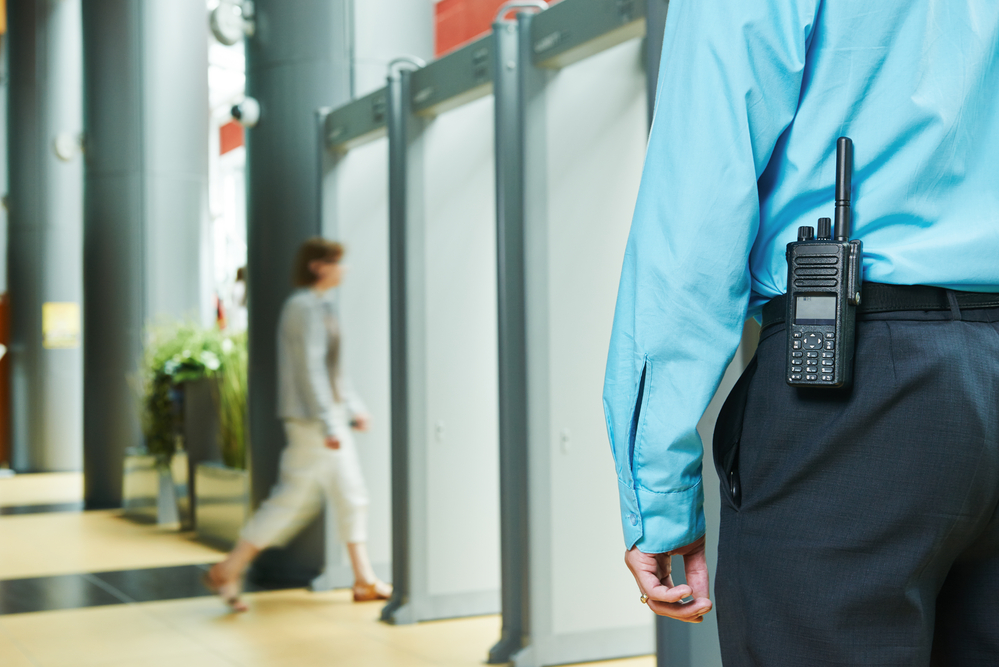Security guards and bouncers both keep people safe, protect properties, and are often stationed at the front entrance of the building they are tasked with defending.
Many people believe them to be the exact same thing but they do actually both hold very different responsibilities and require different skillsets in order to be successful. If you are thinking of becoming a security guard or bouncer, or are looking to hire professional security for your property, it is vital that you know the difference between the two.

Security Guards
Security guards work in any number of different settings across the UK, protecting retail stores, construction sites, shopping centres, theatres, and much more besides. They are tasked with keeping the property secure, controlling security technologies such as CCTV and alarm systems, and keeping those on site safe. They may also be asked to perform some non-security concierge duties such as answering customer questions, taking phone calls, and directing visitors where they need to go.
The main responsibilities of the average security guard in the UK are:
- Controlling access to the property to prevent unauthorised access.
- Carrying out routine patrols to make sure everything is good on site.
- Monitoring activity using CCTV cameras
- Controlling large crowds of people
- Responding to alarm activations and overseeing the evacuation of the building if required.
Bouncers
Bouncers, also known as door supervisors, specialise in security in the hospitality and entertainment industries. The biggest difference between the two roles is that bouncers are qualified to operate on licenced premises where alcohol is served. Some of the places you will likely have seen bouncers is on the door at nightclubs, bars, pubs, and music venues. They help to keep the peace and deescalate volatile situations as well as checking IDs and preventing underage individuals from gaining access.
Their responsibilities include:
- Checking the identification of patrons attempting to enter the venue
- Keeping the number of people in the venue to a manageable and safe level
- Keeping queue orderly and calming down any situation that look likely to grow hostile.
- Removing troublesome individuals from the premises.
- Ensuring that all of the venues rules regarding behaviour and licensing regulations are maintained in a professional and non-confrontational way if possible.
Qualifications
In order to work as a bounder in the UK, you are required, by law, to hold a valid SIA door supervisor licence. This licence covers all the skills that you could possibly need to deal with the challenges that bouncers face on a daily basis including conflict management, physical intervention, first aid, and more. Some of these are also covered in the SIA security guard training programme, but others are not and should not be confused as the same thing. The use of force, controlled and only when absolutely necessary, is more likely to be required by a bouncer than a security guard, so it is understandable that more conflict related training is needed.